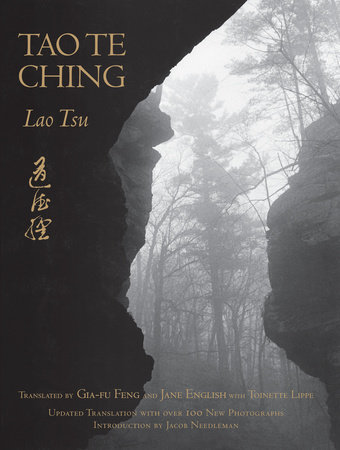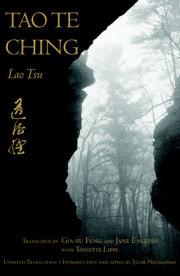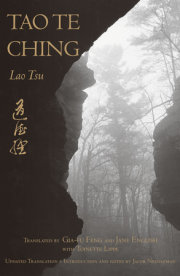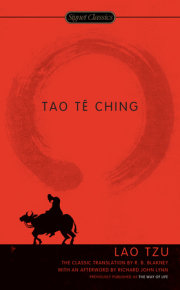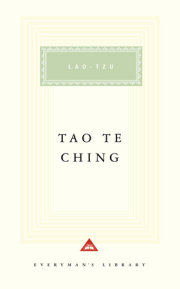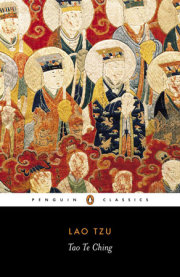ONE
The Tao that can be told is not the eternal Tao. The name that can be named is not the eternal name. The nameless is the beginning of heaven and earth. The named is the mother of ten thousand things. Ever desireless, one can see the mystery. Ever desiring, one can see the manifestations. These two spring from the same source but differ in name; This appears as darkness. Darkness within darkness. The gate to all mystery.
TWO
Under heaven all can see beauty as beauty only because there is ugliness. All can know good as good only because there is evil. Therefore having and not having arise together; Difficult and easy complement each other; Long and short contrast each other; High and low rest upon each other; Voice and sound harmonize each other; Front and back follow each other. Therefore the wise go about doing nothing, teaching -no--talking. The ten thousand things rise and fall without cease, Creating, yet not possessing, Working, yet not taking credit. Work is done, then forgotten. Therefore it lasts forever.
THREE
Not exalting the gifted prevents quarreling. Not collecting treasures prevents stealing. Not seeing desirable things prevents confusion of the heart. The wise therefore rule by emptying hearts and stuffing bellies, By weakening ambitions and strengthening bones. If people lack knowledge and desire, Then it is best not to interfere. If nothing is done, then all will be well.
FOUR
The Tao is an empty vessel; it is used, but never filled. Oh, unfathomable source of ten thousand things! Blunt the sharpness, Untangle the knot, Soften the glare, Merge with dust. Oh, hidden deep but ever present! I do not know from whence it comes. It is the forefather of the ancestors.
FIVE
Heaven and earth are impartial; They see the ten thousand things as they are. The wise are impartial; They see the people as they are. The space between heaven and earth is like a bellows. The shape changes but not the form; The more it moves, the more it yields. More words count less. Hold fast to the center.
Copyright © 2011 by Lao Tsu Translated by Gi-fu Feng and Jane English with Toinette Lippe. All rights reserved. No part of this excerpt may be reproduced or reprinted without permission in writing from the publisher.

